What should a healthy and balanced diet include?
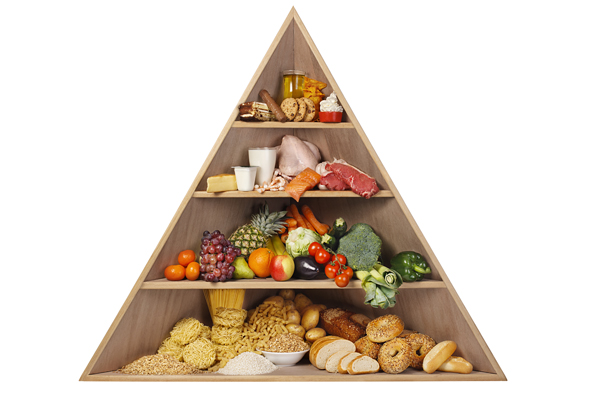
Let’s start with the basics – what constitutes as a healthy diet? Surprisingly, the answer can vary depending on your source – some see protein as the answer while others opt for excluding red meat or increasing their intake of healthy fats. The important thing I always try to emphasise, though, is moderation.
As a society, our diets often veer into extremes – too much sugar, too much salt – or alternatively not enough of what we need – not enough fats, not enough fruit and vegetables and not enough dietary fibre. Sometimes it seems we either gravitate towards one end of the spectrum or the other, especially at this time of year.
Ideally what you should be aiming for is a healthy balance of all food groups – carbohydrates, fruit and veg, protein and fats – as demonstrated in the picture above. The problem is not everyone seems to understand what the daily recommendations are and sometimes they even try eliminating essential food groups from their diet!
That’s why I’m going to take a look at some of the more popular questions I receive concerning the 5 essential food groups, why they contribute towards a balanced diet, and how some simple changes can make all the difference when it comes to your health and wellbeing.
Are carbohydrates really necessary?
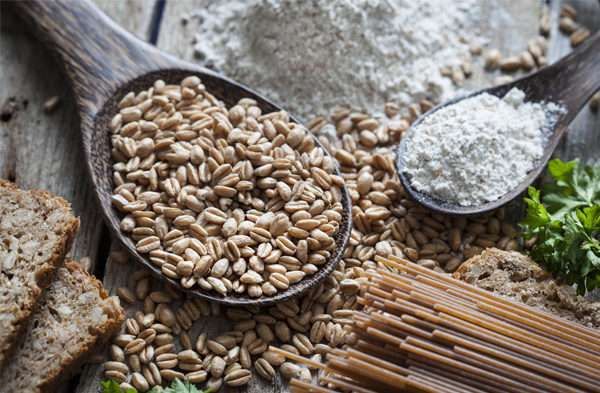
Yes, the right carbohydrates are essential to a healthy diet.
In 2017, the Atkins diet was bigger than ever and more and more people are going ‘low carb’, under the belief that this food group is contributing towards bigger waistlines and other health problems.
The thing is, your body needs carbohydrates. They’re an excellent source of dietary fibre and the NHS even recommends that starchy foods such as potatoes, rice and bread should be making up around 33% of your daily diet, forming a basis for most of your meals.1 So why are people turning away from carbohydrates?
The main problem seems to be that we are consuming too many refined carbohydrates -– carbohydrates that have been processed to such a degree that they lose many of their inherent nutrients. White variants of pasta, rice and bread all fall into this refined category, along with some cereals, cakes and other pastry treats. These types of carbs can cause blood sugar spikes and increase your risk of obesity.
The types of carbs that the NHS are talking about are unrefined or 'complex' carbohydrates – think wholemeal bread, brown rice and potatoes. These carbs still retain their nutritional value, including a healthy helping of dietary fibre and B vitamins, and are even known to help lower your blood sugar levels so I wouldn’t start eliminating them from your diet.
Instead, focus on including more unrefined carbohydrates in your diet. Start by making a few simple switches – exchange your white bread for a wholemeal loaf, opt for brown rice over white rice and choose a healthy breakfast option such as porridge or bran flakes instead of choosing typical high-street fare such as Frosted Shreddies or Coco Pops, which are often full of hidden sugars anyway!
My favourite carbohydrate-based recipes:
Cacao & Peanut Butter Porridge
Mexican Beanie Rice
How many fruit and vegetables should I eat in a day?
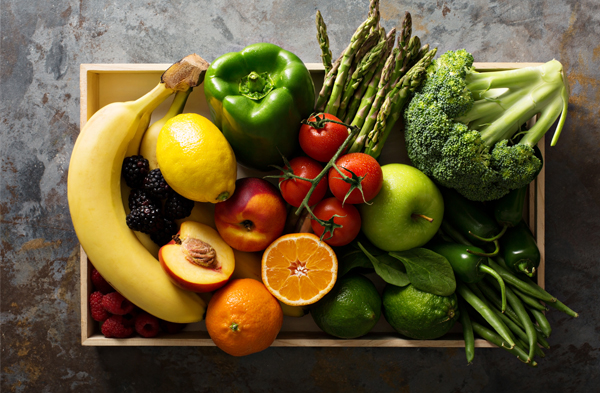
If you read my blog earlier last year, you’ll already know that our fruit and veg recommendations are changing, with emphasis now being put on 10 portions of fruit and veg a day compared the usual 5 that we’re used to hearing about. However, as I mention in the blog, this can be a challenge for most us, especially if you struggle with your 5 a day, never mind 10.
First, let’s clarify what a portion of fruit or veg is – 80g. Now 80g roughly amounts to 1 medium banana or apple or around 5 spears of asparagus or two tinned plum tomatoes – yes tinned tomatoes count! That doesn’t sound like too much but most opinions seem to be that, as a nation, we struggle to make 2 portions a day.
If you’re only making 2 portions a day, I would hold off aiming for 10 and learn to walk before you can run. There’s nothing wrong with still aiming for 5 so long as you are actively trying to increase your intake. Altogether fruit and veg should make up around a third of what you eat each day.
If you are struggling to meet this target start small - soups and smoothies are one of my favourite ways of getting more fruit and veg into my diet. They’re quick and affordable options – one big pot of soup normally accounts for my lunches each week – while affording you the chance to be creative and choose from a huge range of ingredients.
My favourite soup and smoothie recipes:
Easy Spicy Sweet Potato Soup
Easy De-Bloat Green Smoothie
Is protein powder bad for you?
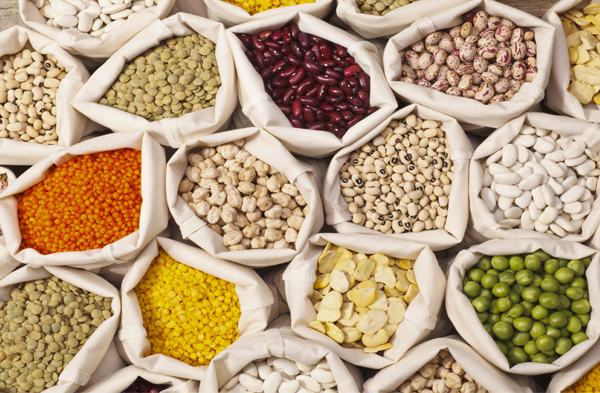
If there’s one food group that’s really sky-rocketed in popularity recently, it’s protein. For years, it was primarily associated with body builders and fitness fanatics but nowadays, more and more of us are looking to increase our intake of protein meaning that protein powders are rising in popularity.
There’s nothing inherently wrong with protein’s newfound popularity. Protein is an essential nutrient and we need plenty of it to survive, however, not all of us really need a protein powder and problems can arise when we perceive them to be an acceptable alternative to dietary sources.
For example, a lot of you are probably trying to stick to your keep-fit routines and may have turned to protein powders without really thinking it through. As our Get Active Advisor Earle Logan details in his blog ‘Do you really need a protein shake after your workout?’ a 30 minute jog or a couple of gym sessions a week doesn’t really justify using a protein shake.
You also have to consider that a lot us don’t really understand our protein requirements either. Unless you’re working out regularly and intensely, most of us are advised that 0.8g of protein per kg of body weight – if you weigh around 11 stone, this amounts to around 55g a day.
Another major issue is that we’re not eating the right kinds of protein. Processed meat and fast-food burgers often mean that we exceed this daily recommendation so, if you are trying to get a grip on your protein intake, I would start with picking lean forms of meat such as chicken or turkey. It’s also important to remember that there are plenty of plant-based forms of protein too, including pulses, lentils, quinoa, buckwheat and tofu!
My favourite protein-based meals:
Lentil Ragu with Zucchini Noodles
Curried Lentil Potato Casserole
What are good fats and bad fats?
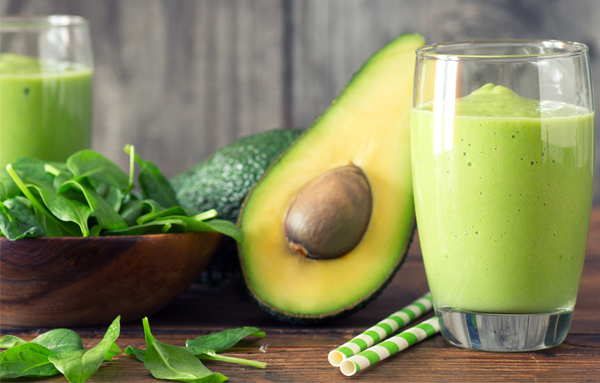
Ah fats – the most controversial and confusing food group of all. When it comes to January, most of us like to try and jettison fats completely from our diet. After all, we’re repeatedly told that too much fat can elevate our cholesterol levels, lead to cardiovascular disease and expand our waistlines.
The truth isn’t quite this clear cut though, as my colleague Ali discusses in her blog, ‘Everything you need to know about fats.’
Loosely speaking, there are good fats and bad fats. Bad fats are found in the usual suspects – cakes, chocolate, fatty meats, whole milk and lard. They’re known as bad fats and are high in artificial trans fats and saturated fat, the types of fat that can affect your risk of developing heart disease.
Goods fats are found in foods like avocados, coconut oil, oily fish and tofu. These types of fat are rich in monounsaturated fats and polyunsaturated fats and may actually contribute towards increasing your levels of healthy cholesterol and regulating your blood sugar levels.
However, some of these foods also contain saturated fats, which can be where the confusion starts. Coconut oil, for example, is high in saturated fats but low in cholesterol so it doesn’t affect your health the same way lard might.
It’s also important to remember that while unhealthy fats should form a small proportion of your diet (around 5% of your daily intake), some experts are now recommending that healthy adults increase their intake of healthy fats so it forms around 25% of their calorific intake.2
I wouldn’t necessarily recommend making this jump immediately though. Instead, try to gradually introduce more healthy fats into your diet – try to cook with coconut oil or have your toast with smashed avocados.
My favourite meals that incorporate healthy fats
Pineapple & Avocado Smoothie
Spicy Nut Roast
What else can you do to keep your diet on track?
Okay, so I’ve discussed some of the basics when it comes to maintaining a healthy and balanced diet but what other food groups should you focus on?
Try fermented foods
Well, if you read my blog ‘8 food trends not to miss in 2018,’ you’ll know that there are several upcoming trends that I think are really worth paying attention to, including pre and probiotic foods. These specific types of food are excellent when it comes to supporting your digestive health and your gut’s population of friendly bacteria which can help to increase your metabolism, boost your immunity and reduce symptoms such as bloating and diarrhoea.
Fermented foods in particular are great when it comes to supporting your balance of bacteria, so definitely try to include more them in your diet going forward this year. Natural yoghurt, Kefir and fermented vegetables such as natto, miso and kimchi are all worthy additions to a balanced and complete diet.
Go organic
Going completely organic can be tricky and not very affordable, particularly if you’re working to a strict budget. However, making simple changes where you can makes a real difference, helping to enhance the nutritional value of your food and reducing your chances of you consuming any nasty chemical by-products. If you’re looking for somewhere to start, I would recommend switching to organic milk and looking at foods such as spinach, tomatoes and potatoes as they tend to have the most pesticides used on them.
Drink more water
I really can’t emphasise this enough – drinking water really is integral to your health! Nevertheless, so many of us choose caffeinated beverages such as tea or coffee as our drink of choice, which can be quite dehydrating. If you’re looking to do one thing to improve your health this year, try to drink more plain water and be wary of any alternatives – as I discuss in my blog ‘8 unexpected drinks that are bad for your health.’
Remember to relax!
Rigorously counting calories and feeling remorseful from overindulging in the occasional scoop of ice cream isn’t going help you going forwards. As I mentioned at the beginning of this article, moderation is key. The odd chocolate bar or glass of wine aren’t going to ruin your diet and won’t impact your long-term healthy so stop worrying and feeling guilty over nothing! Instead, enjoy eating good food, take a deep breath and relax.





 Looking for our products in a store near you?
Looking for our products in a store near you?
